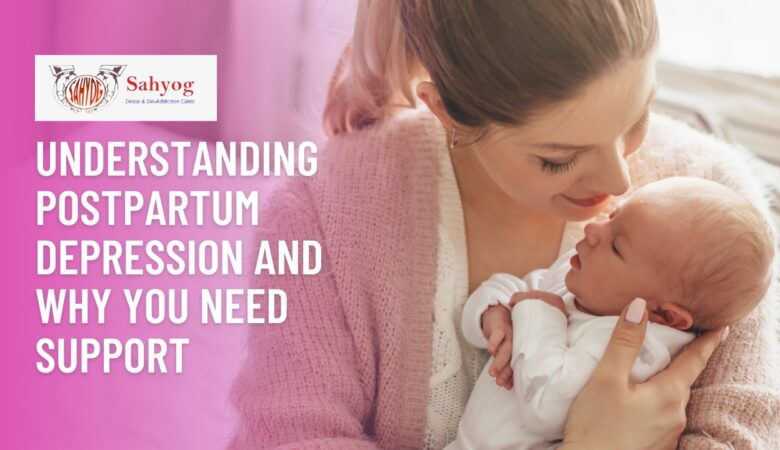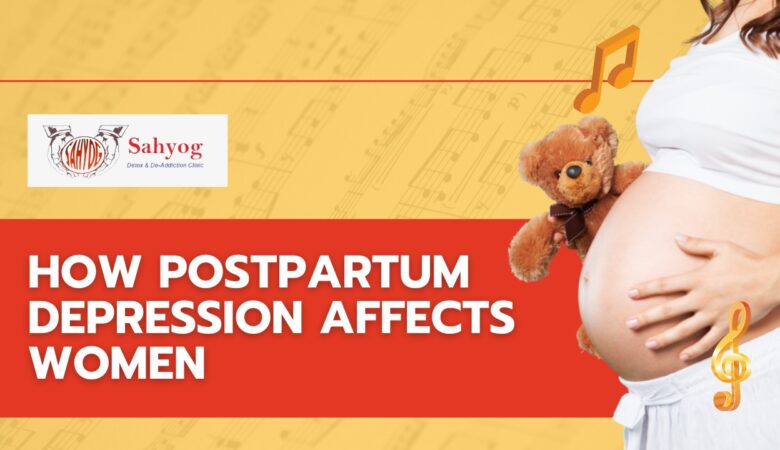Understanding Postpartum Depression and Why You Need Support
Welcoming a new life into the world is regularly seen as a time of joy and celebration. However, some new mothers may experience a period after giving birth that is filled with intense sadness, anxiety, and a decreased interest in activities they previously enjoyed. This emotional rollercoaster is called postpartum depression (PPD), a circumstance that influences a substantial wide variety of women. In this article, we are able to delve into the depths of postpartum depression, exploring its causes, symptoms, and the crucial need for support at some point of this tough time. What is Postpartum Depression? Postpartum depression (PPD) is a complex and multifaceted intellectual health circumstance that affects a significant number of women globally. It is critical to apprehend that PPD isn’t always a character flaw or a sign of a weak spot; it’s a legitimate clinical situation that calls for attention and help. The transition to motherhood can result in a whirlwind of emotions, starting from joy and excitement to tension and fatigue. While it’s normal to experience fluctuations in temper after childbirth, postpartum depression goes past the expected “baby blues” and is characterized by means of chronic feelings of sadness, excessive fatigue, tension, irritability, and a standard lack of interest or pleasure in day by day activities. The Causes of Postpartum Depression The reasons for postpartum depression are not fully understood, but researchers have diagnosed several factors that contribute to its development. Hormonal adjustments play a great role, as being pregnant triggers massive shifts in hormone levels. After giving birth, there is a sudden drop in estrogen and progesterone that may have an effect on neurotransmitters inside the brain, leading to a change in mood and emotional well-being. However, hormonal shifts alone can not absolutely provide an explanation for the development of postpartum depression. Other contributing factors encompass a record of depression or tension, a lack of social assistance, sleep deprivation, difficulties in the mother-infant relationship, and adjustments to the brand new obligations and lifestyle modifications that come with caring for a new child. The mixture of physical, emotional, and social changes can create a perfect storm for the onset of postpartum depression. The Importance of Support Support is a vital factor in supporting women to navigate via the tough experience of postpartum depression. It is vital for friends, family, healthcare providers, and society as a whole to understand the signs and symptoms of PPD and offer the necessary help and understanding. The stigma surrounding mental health issues, along with postpartum depression, could make it tough for women to reach out for assistance. Creating a supportive environment where women feel comfortable discussing their feelings and seeking assistance is essential. A strong support network can provide emotional validation, practical assistance with childcare and household chores, and encouragement to seek professional help. Partners, family members, and friends can play a massive role in providing emotional assistance and understanding, allowing the mother to express her feelings without judgment. It is essential for loved ones to educate themselves about postpartum depression, its symptoms, and available sources to offer help. Additionally, healthcare providers, such as obstetricians, primary care doctors, and mental health experts, need to be proactive in screening for postpartum depression at some point of routine check-up and presenting appropriate sources and referrals. Open and honest conversations about postpartum depression have to be encouraged, both inside healthcare settings and in society at large, to get rid of the stigma and promote early intervention. Support groups specifically tailored for mothers with postpartum depression can be incredibly beneficial. These groups create a safe space for sharing experiences, reducing feelings of isolation, and learning coping strategies from other women who have faced similar challenges. Group therapy sessions allow mothers to connect with others who understand their struggles, providing a sense of community and hope. Online forums and virtual support groups have also become popular, offering accessible platforms for women to seek support and share their stories. Peer support can make a significant difference in a woman’s recovery journey. Seeking Professional Help While support from loved ones is invaluable, it is important to recognize that postpartum depression is a medical condition that often requires professional intervention. Women experiencing PPD should not hesitate to seek help from healthcare providers. Obstetricians, primary care docs, and mental fitness experts are skilled to diagnose and deal with postpartum depression efficiently. Professional help can also involve therapy, medicinal drugs, or an aggregate of each, depending on the individual’s needs. Cognitive-behavioral therapy (CBT) and interpersonal therapy (IPT) are generally used therapeutic strategies which could help moms cope with bad thoughts, broaden coping mechanisms, and enhance their overall well-being. These treatment plans offer a secure and supportive area for women to discover their emotions, identify triggers, and broaden strategies to manage their symptoms. In a few cases, antidepressant medicinal drugs may be prescribed to rebalance brain chemistry and alleviate symptoms. Medication can be specifically beneficial when the depression is intense or substantially impairs day by day functioning. It is essential to visit a healthcare professional to decide the maximum suitable treatment plan primarily based on the severity of the signs and symptoms, and individual situations. Conclusion Postpartum depression is a serious mental health condition which can have an effect on any new mother, no matter background or circumstances. Recognizing the signs, understanding the underlying causes, and providing support are critical steps in helping women overcome this challenging period. With the right support system in place, women experiencing postpartum depression can find solace, regain their joy, and build a stronger bond with their newborns. Let us foster a society where support and understanding for postpartum depression become the norm, enabling every mother to embark on their journey with confidence and resilience. Frequently Asked Questions (FAQs) 1. What is postpartum depression (PPD)? Postpartum depression is a form of scientific depression that occurs after childbirth, characterized by means of chronic feelings of disappointment, fatigue, anxiety, and a lack of interest or pride in everyday activities. 2. How commonplace is postpartum depression? Postpartum depression


